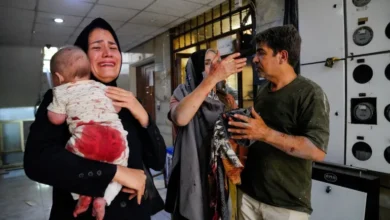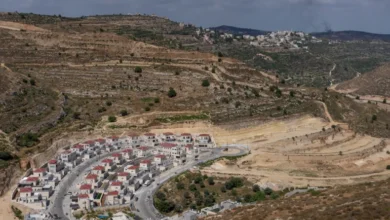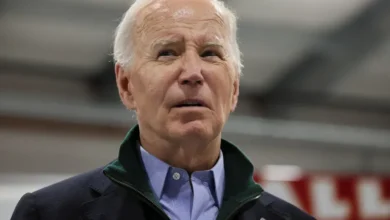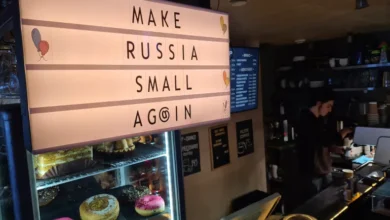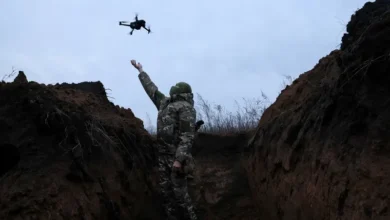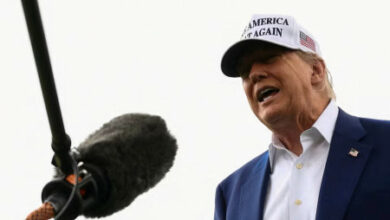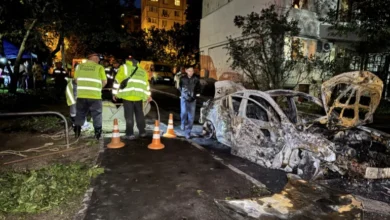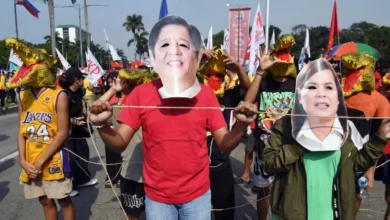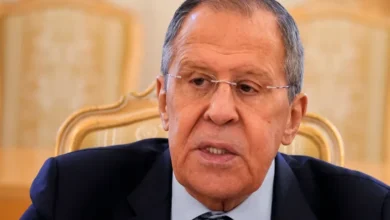Taiwan spots Chinese warships, aircraft near island ahead of elections
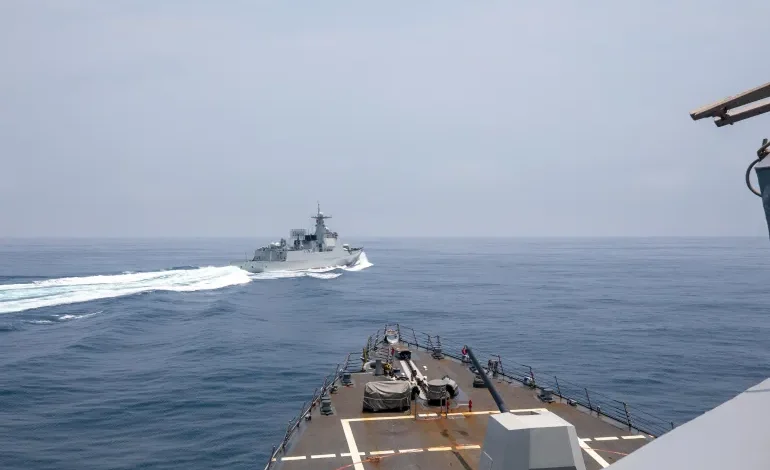
Taiwan has reported spotting Chinese warships around the island and aircraft crossing the Taiwan Strait’s sensitive median line weeks before elections in the democratically governed nation.
On Saturday, the Ministry of Defence said in a post on X that since 1:30pm (05:30 GMT) it had detected J-10, J-11 and J-16 fighters as well as early warning Chinese aircraft operating in the airspace to the north, middle and southwest of Taiwan.
Ten aircraft crossed the Taiwan Strait, or areas close by, working with Chinese warships to carry out “joint combat readiness patrols”, the ministry said, adding that its armed forces have taken steps to respond.
The uptick in Chinese military activity in the Taiwan Strait comes just weeks before Taipei heads to the polls.
Earlier this month, the defence ministry also spotted warships and a balloon near the island at night. While Beijing has been sending warplanes and vessels around Taiwan on a near-daily basis, nighttime activity by Chinese aircraft and the appearance of a balloon are rare.
Democratically governed Taiwan, which China claims as its own territory, has complained for years of regular Chinese military patrols and drills near the island.
Beijing has not yet commented on the recent military activities near Taiwan. But it has previously described them as aimed at preventing “collusion” between Taiwan separatists and the United States, and protecting China’s territorial integrity.
Tensions before elections
Ahead of presidential and parliamentary polls on January 13, analysts say China is running a multi-pronged campaign to try to keep the ruling Democratic Progressive Party (DPP) from re-election.
Beijing wants the opposition Kuomintang (KMT) party to win as it seeks friendlier relations with China. Polls, however, show Vice President Lai Ching-te and running mate Hsiao Bi-khim from the DPP in the lead.
China has refused to engage in dialogue with the DPP, which the ruling Chinese Communist Party (CCP) claims is “separatist”. The DPP rejects such accusations and says it is up to the people of Taiwan to choose their leaders and their future.
Beijing has also targeted individuals and public figures in Taiwan through online campaigns and tax probes, seeking to influence how they vote.
“We are seeing the PRC increasingly using Taiwanese voices such as journalists, local proxies and social media influencers to get their message across,” she added, using the acronym for the People’s Republic of China.
Meanwhile, government authorities in Taiwan have put the region on high alert for Chinese activities, military and political, ahead of the elections.
While campaigning has kicked into high gear, how the next government handles relations with China remains a major point of contention.
